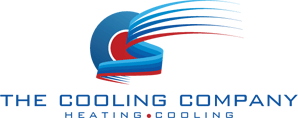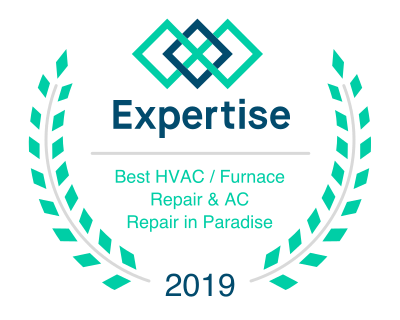Temperatures are rising, days are getting longer, and summer is rapidly approaching. With the onset of warm weather, you might notice a spike in your cooling expenses. This could be an indication that it’s time to consider replacing your current system with a newer model, such as high-performance air conditioners or heat pumps. Boasting improved ventilation, efficient installation, and a reliable warranty, these newer models can meet your unique cooling needs while also saving you money.
Deciding to replace an old air conditioning system can be a difficult process. Firstly, it requires a thorough assessment of the pros and cons to determine whether it’s the optimal decision for your home. The lifespan of your current AC unit can also influence the decision, as older systems might require more immediate upgrades to ensure optimal performance.
The summer heat can be unbearable particularly if you suffer from allergies. A rise in respiratory infections and asthma attacks might be another reason you’re contemplating an upgrade of your HVAC system. Considering the installation of effective heat pumps and proper insulation might be a valuable consideration in minimizing allergen presence and maintaining a comfortable environment. So, where does this put you as an HVAC owner?
Luckily, the control is in your hands to establish a healthy indoor environment. As an HVAC system is at the heart of maintaining your home or office’s comfort, it provides a clean, filtered air stream to breathe, in addition to keeping your space at the perfect temperature. Most modern systems even offer ventilation enhancements.
Typically, people have an HVAC system they depend on to maintain comfort all year round. With regular maintenance, the average lifespan of your AC system can be around ten years. Once the system nears this age, it’s worthwhile to start planning for an upgrade or replacement, ensuring improved performance and a longer warranty period.
Let’s discuss some signs that can guide your decision about ageing air conditioning equipment. When purchasing a new system, always seek professional advice from an HVAC technician who can efficiently handle the installation and provide the necessary warranty services.
Common HVAC System Problems
It can be easy to overlook the importance of your HVAC system until it starts showing problems. Unfortunately, many people wait until their systems encounter issues before considering upgrades or repairs. That’s a big mistake. Instead, you can take a more proactive approach by checking for common signs of HVAC issues and problems.
1. Consider the Unit’s Age
Generally, ten years is the maximum lifespan a heat pump or air conditioner should have before being replaced. Therefore, the age of your AC system is an important factor to consider when deciding whether or not to replace it. In case you have an annual maintenance contract with a professional company, they should have notified you when it was time for a replacement based on the system’s age and condition.
However, if you don’t have an annual heating or cooling maintenance contract, now is the perfect time to get one. If you own an older unit, you might be wasting energy and money, even if it appears to be functioning correctly.
If your current system is nearing or past ten years old, replacing the entire system, or at least the outdoor condenser unit, is a sound strategy. An upgrade should also be considered if your system has required two or more repairs within a year, indicative of an ageing system. Newer models, complete with warranties, efficient insulation, and heat pumps, will require fewer repair works and less energy, ensuring a comfortable temperature.Plus, with proper maintenance, they can last longer, even heating all the rooms in your house in an energy-efficient way. Implementing simple tips like regular maintenance can also help you substantially reduce energy bills.
2. Your Energy Bill has Increased
Has your energy cost increased over the months or years? Be especially cautious if you haven’t changed any of your habits in the home or the way you use electricity across different areas. A sudden increase in energy costs often indicates problems with the HVAC system.
Schedule an inspection to know for sure if the system is to blame. For example, it might be time to upgrade if you spend much more than others around you on your utility bills every month. There could be ways with which you might be able to decrease these costs, such as by using a heater to warm specific areas rather than the entire house.
3. You Always Need to Repair Your Unit
Have you repaired your HVAC system several times in a short period? Then, start thinking about your repair cost over time. Your system should be paying for itself over time, not costing you more.
A system that is functioning won’t require much professional attention. However, if you find that you’re continually calling service professionals to inspect your HVAC system, it’s time for an upgrade. You’ll save more on repairs by buying a new one in the long run. However, it just gets more expensive by continuing to fix the old one. A major breakdown could cost as much as a brand new furnace or air conditioner!
4. Your HVAC System is Noisy
Your system may make some noise when it starts up or shuts down. However, if it’s running noticeably louder than usual, there could be something wrong with internal components like the blower motor or fan belt. You’ll want to have a professional inspect the system and make recommendations on whether the problem can be fixed or if you’re better off replacing it.
Specifically, be looking for banging noises, clanking, squealing, clicking, or rattling. The unit or even the ductwork could be to blame. A certified service technician can inspect your system, including the ducts, to analyze and diagnose the problem.
5. Your HVAC System Doesn’t Perform as Well as It Once Did
You may be running your HVAC system all the time and still not feel comfortable in your home. Perhaps you’re not getting as much cool air as before. You may feel comfortable one minute but then too hot or cold the next. This could also be a sign of ductwork leaks.
There’s a strong chance your HVAC system is to blame. Many homeowners have no idea that their AC unit is too small for their homes. When your air conditioner is too small for your house, it runs constantly and never reaches the temperature you’ve set on the thermostat. This can be frustrating, but it’s also expensive.
A unit that’s too small won’t cool your home effectively and could cost you hundreds of dollars in wasted energy each year. A certified AC tech can tell you what size AC you need based on the square footage of your home. So before committing to a new central air conditioning unit, get all the information you can.
6. You’re Selling Your Home Soon
Selling your house is an excellent reason to be considering upgrading your HVAC system. Nobody wants to worry about spending thousands on upgrades or repairs after purchasing a home. Upgrading your AC unit can dramatically increase the chances of your home selling.
Upgrading your home’s HVAC system before listing your home may increase your property value. Not only will it keep your energy bills down, but it can also create a more comfortable living environment all year round.However, you don’t want to solely focus on the cost of replacing or upgrading your heating system, be it changing out the entire unit or individual components such as furnaces. Instead, take a moment to think about the benefits that you’ll get in return, from increased room comfort to energy savings.
If you replace the unit with a high-efficiency model, you could see substantial energy savings even before you consider moving. The change from an outdated unit to a modern one can greatly impact your energy consumption. Plus, with upgraded equipment, you can also increase your asking price. If you invest in a Lennox unit, endorsed by many a contractor, you may also be able to market the home as having “green” features. Lennox AC systems, which are famously reliable products, are designed to help you reduce your carbon footprint while improving efficiency. Being environmentally friendly could help make your home more appealing to specific buyers who appreciate such benefits.
If you have a nonfunctioning HVAC system, discerning buyers will likely request a deep discount on the purchase price or ask you to fix it before moving in. This could affect the sale process and unfortunately, end up costing you more money.
7. It’s Too Humid in Your Home
There should be very little to no humidity inside your room. Excessive humidity, often influenced by the weather, is a telltale sign that your equipment is broken, needs a tune-up, or isn’t operating as it should. Depending on your humidity levels, it can also cause mold in your home. If you notice mold, you should also start thinking about air purification. In some cases, a dehumidifier can fix the problem. However, your HVAC system, specifically the state of your furnace or cooling unit, is likely the true source of the problem.
Several factors lead to poor indoor air quality. Humidity is only one of them. If your AC unit isn’t energy-efficient, it impacts your comfort and creates many other problems. If you are struggling with humidity in your home, you have several products and options to help control the situation, including upgrading your HVAC system. Modern air conditioners from reputable contractors are designed for efficiency. Lennox, for instance, produces some of the best air conditioners in the industry. They have the highest efficiency standards and are designed to serve you and your family for a long time.
Before you start exploring how to upgrade your home’s HVAC system, it’s essential to understand the difference between high humidity and high moisture levels. While these two terms may seem interchangeable, they’re quite different situations and will require different courses of action to address.
High humidity means a large amount of water vapor is in the air. It makes you feel sticky and uncomfortable. High moisture levels mean liquid water is abundant on surfaces such as windows or walls. High humidity, affected by weather conditions, can lead to high moisture levels if not appropriately addressed. When people refer to humidity issues in their homes, they usually refer to both high humidity and high moisture levels.
8. Your Home is Exceptionally Dusty
If you find yourself digging out the duster more frequently than usual, your HVAC system might be to blame. Your ductwork might also need a thorough cleaning by a professional contractor. Dust is one of the most common allergens that affect indoor air quality in the summer season. In addition, one of the most significant signs that it’s time to replace your HVAC system is if there are a lot of dust and poor air quality in your room.
Over time, the filter on your furnace or cooling system gets clogged with dust and other particles. When this happens, you will likely observe high heating or cooling costs, suggesting the need for immediate remedial actions or even an overall system upgrade. Such changes, though they may seem daunting, are investments in the long-term health and comfort of your home.Or even worse, if your AC or other HVAC equipment like heaters are too dirty, it can stop working. Of course, in the height of summer, or the depths of winter, no one wants to experience a breakdown, especially in shared spaces where climate control is crucial. So if you’re finding that you need to clean your HVAC system often, it’s probably time to get a new unit before it wears out completely or grinds to an end.
When replacing an old system, always go for high-efficiency air conditioner and heaters. Enhanced with air filters, these units can make a significant difference in maintaining a comfortable indoor climate. Follow up with proper maintenance is also crucial, and we recommend that you practice efficient HVAC use with a programmable thermostat.
If you’ve noticed any of these issues with your central air system, it’s time to give The Cooling Company a call. We are always standing by to answer your questions about heaters, air filters, or any other HVAC equipment concerns you may have.
Conclusion
The average lifespan of HVAC units, including heaters, is roughly ten years. These are complex systems that require regular maintenance for greater efficiency. If your current system can’t keep up with the unique climate needs of your various spaces, it’s time to consider a new HVAC system. Otherwise, you may end up spending too much time and money on expensive repairs towards the end of its lifespan.
When is a great time to upgrade your system? It is the right time to replace your old HVAC system, including heaters and air filters, before it breaks down completely. So you must be able to identify the signs.
Identifying the symptoms of a central air conditioner or heater failure can save you money. While some warning signs may be due to the system’s age, others issues can show up in less time if the HVAC equipment does not get the proper care.
You can control your cooling costs, maintain a comfortable environment in all spaces, and protect the long-term integrity of your system with regular HVAC maintenance. In addition, it’s easy to extend the life of your system by protecting it from major failures towards the end of its lifespan. So after you get your new air conditioning system installed, complete with updated air filters, don’t stop there. Line up a seasonal tune-up twice a year by a certified HVAC technician.
A lot goes into deciding whether to get an air conditioner upgrade instead of an AC repair, or considering new heaters or air filters for your HVAC system. It can indeed be confusing for homeowners to determine if the time has come to upgrade their HVAC equipment. Generally, it comes down to two things: cost and efficiency. First, you want to choose a unit with optimal energy efficiency. So pay attention to the seasonal energy efficiency ratio (SEER) rating. Upgrading to a higher SEER rating unit will save on energy consumption.
The Lennox brand is leading the industry when it comes to efficient HVAC systems, including heaters and integrated air filters, with high SEER ratings. In addition, some units come with unique features such as Silent Comfort Technology for quieter operation. At The Cooling Company, we are proudly a Premier Lennox Dealer.
When your system experiences repeated breakdowns or doesn’t yet meet current efficiency standards, it’s probably time to consider replacement options. If that’s the case, don’t fret. You’re not alone in this climate control journey. Contact The Cooling Company and discuss these concerns with an expert today.
discuss this with an expert today. We’ll help you find an energy-efficient system that’s within your budget.












